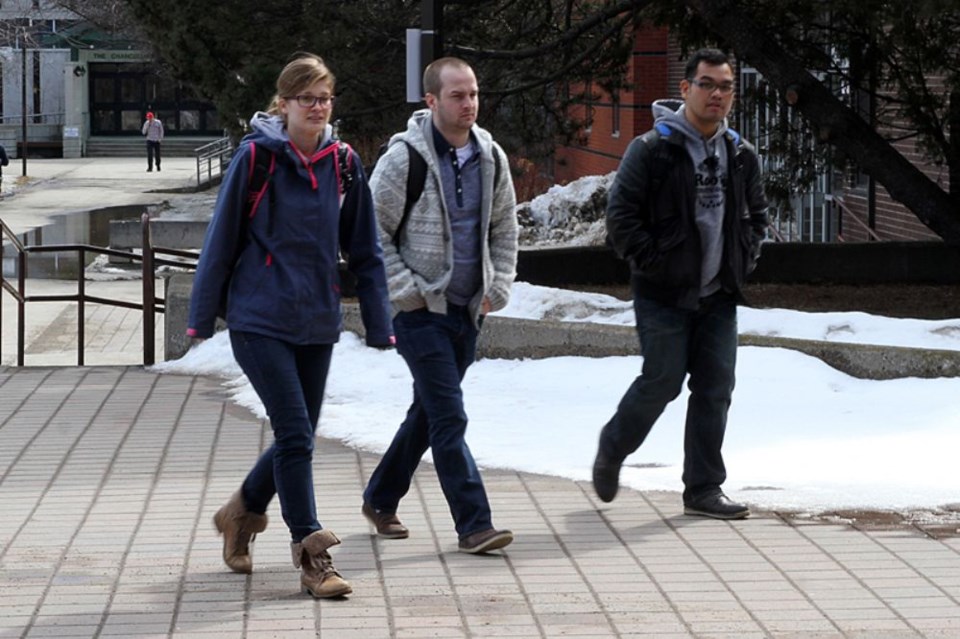THUNDER BAY -- Dan Bacsa says there are other ways for Lakehead University to find $450,000 annually than on the backs of an already burdened student body.
Bacsa, vice-president of operations and finance with the Lakehead University Student Union, said on Thursday if tuition increases are a must next year, the school should hold them to the cost of inflation, or two per cent, not the three per cent hike the university is seeking to implement.
There are plenty of other areas where efficiencies can be found, he added.
“(The difference in proposals) is one-seventh of Lakehead’s travel budget. It’s a quarter of their strategic initiatives budget,” Bacsa said.
The LUS U proposal represents about four-tenths of one per cent of the school’s $120-million annual operating budget.
Students simply can’t afford to pay any more money to obtain a post-secondary education, he added, estimating the average student winds up with about $20,000 in debt after graduation.
LUSU is also starting to see a steady increase in the number of students making use of the on-campus food bank at the Thunder Bay university.
Enough is enough, he said, noting school officials have raised tuition for nine straight years. A 10th just isn’t affordable.
“The increase is just slightly more than the salary of the president himself. They have the money, it’s just a matter of priorities.”
It was revealed last week when the province released its public-sector salary disclosure documents that Lakehead president Brian Stevenson earned $360,000 last year, with an additional 291 Lakehead employees named on the annual sunshine list of Ontario workers making more than $100,000 in 2014.
Board of governors president Murray Walberg said nothing is yet set in stone, respondng to LUSU president Ian Kaufman's complaint about the proposed hike.
"Lakehead's board of governors heard Mr. Kaufman's concerns at its meeting in March, and we look forward to continuing discussions with LUSU at future meetings, including the one on April 7," Walberg said in a media release.
Bacsa said students are rightly concerned, but many don’t realize the impact.
“Before you’re in the workforce, you don’t quite understand what $20,000 means. But I think students feel that amount, especially as they get closer to graduation. And if Lakehead continues to increase fees like this, in 20 years students will be paying $60,000 for an education.”
Last month the school came under fire after Kaufman suggested university leadership were trying to sneak through a tuition hike.
At the time Stevenson said the school was trying to be transparent.
“There’s no point having that vote if the students don’t know about it. We want them to know about it and be part of the process.”
Lakehead’s board of governors is set to vote on the tuition increase on April 7.
The student union intends to present its counter proposal at that time.
